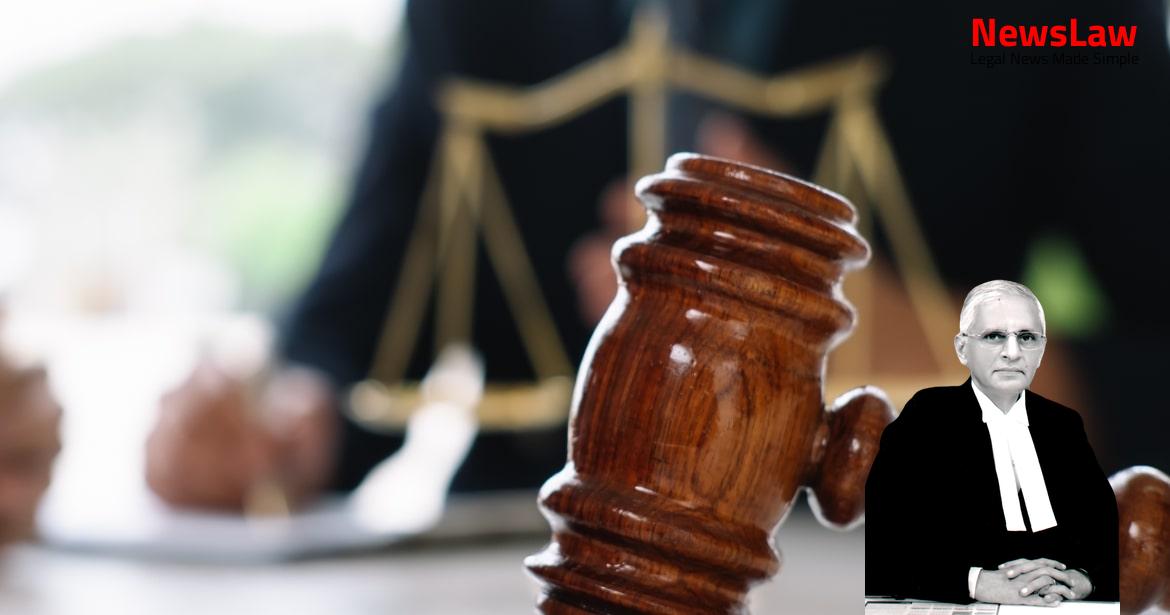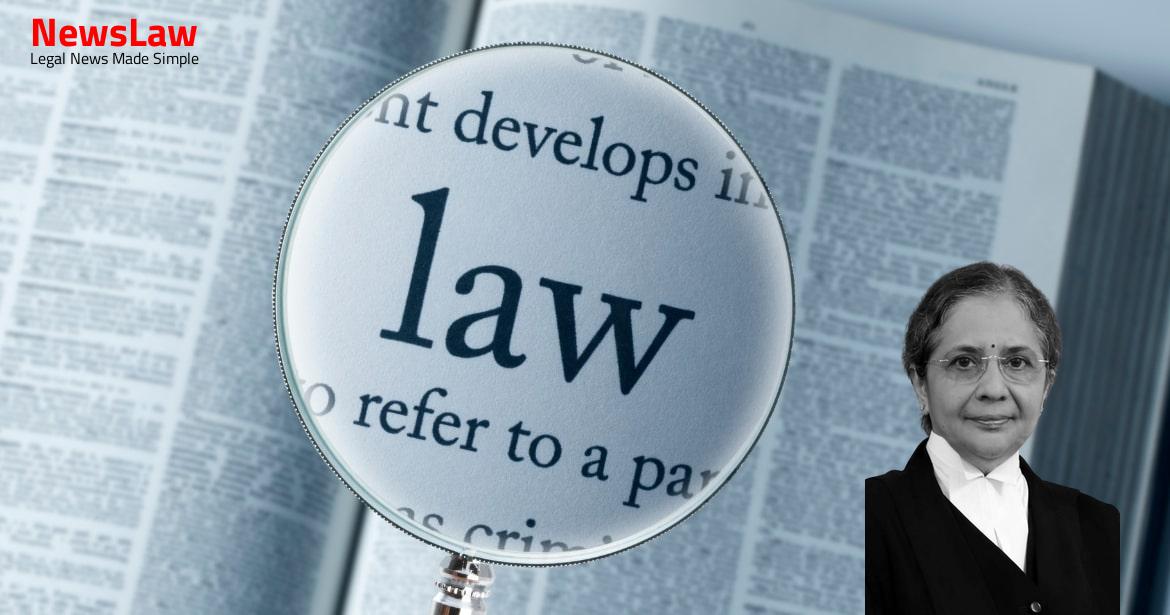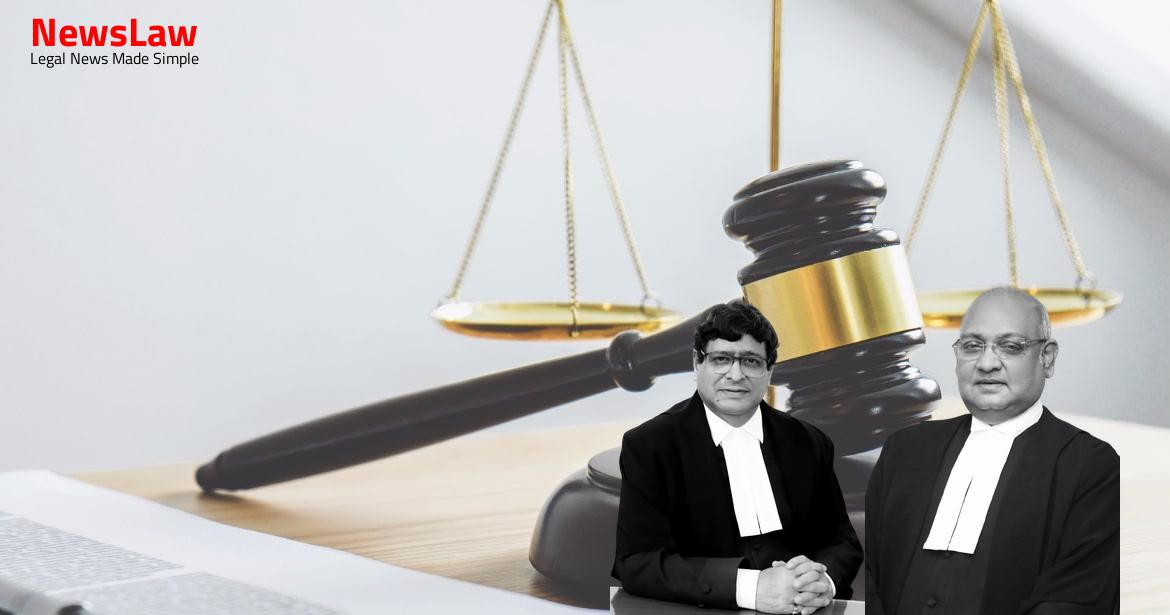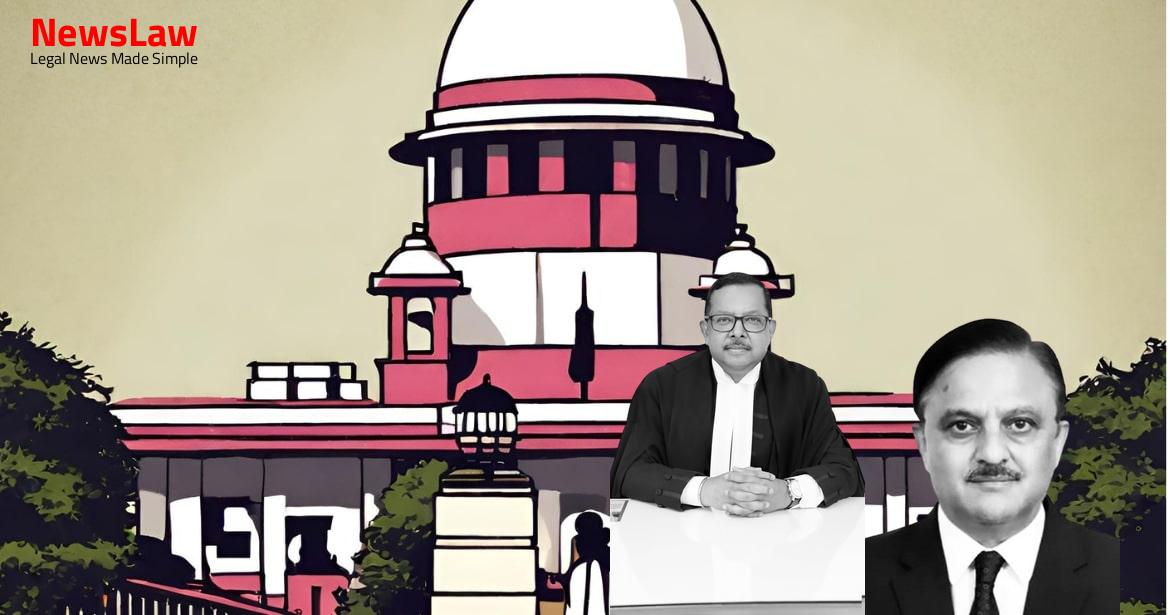The recent legal case revolves around the interpretation of parliamentary privileges in relation to immunity from prosecution for bribery. The Court’s detailed legal analysis sheds light on the significance of Constitutional interpretation, the history and evolution of parliamentary privileges in India, and their connection to the UK. Explore the implications of the Court’s consideration of whether MPs can claim immunity from prosecution for bribery under the Constitution, and the jurisdiction of the House in prosecuting offences under criminal law.
Facts
- A complaint was filed before the Central Bureau of Investigation alleging a criminal conspiracy involving members of the JMM and JD (AS) who received bribes to vote against a no-confidence motion.
- The appellant, a member of the JMM in Jharkhand, was accused of accepting a bribe from an independent candidate in exchange for her vote.
- The round of elections in question was annulled, and a fresh election was held where the appellant voted in favor of her party candidate.
- The alleged offense committed by the appellant is not being adjudicated at this stage.
- The appellant moved the High Court to quash the chargesheet and criminal proceedings against her.
- The controversy in the present case revolves around the interpretation of Article 105(2) of the Constitution, which deals with the privileges of members of Parliament, and Article 194(2), which confers similar immunity to members of State Legislatures.
- The High Court dismissed the petitions and referred the matter to a larger bench due to its importance.
- The matter was referred to a five-judge bench which raised doubts on the correctness of a previous decision and referred it to a larger seven-judge bench.
- The High Court declined to quash criminal proceedings against the appellant as she did not vote in favor of the alleged bribe giver, thus not entitled to protection under Article 194(2).
- Justice SP Bharucha held that those casting votes against a no-confidence motion have immunity under Article 105(2), but those abstaining or alleged bribe-givers do not.
- The appeal was deemed substantial and of general public importance and was placed before a larger bench of three judges.
Also Read: Legal Analysis on Arbitration Petition Limitation Period
Issue
- Can an MP claim immunity from prosecution for bribery under Article 105 of the Constitution?
- Does an MP come under the Prevention of Corruption Act, 1988?
- Who is the designated sanctioning authority for prosecuting an MP under the PC Act?
Also Read: Analysis of High Courts’ Jurisdiction and Court Orders Under Article 142
Arguments
- The minority judgment correctly notes that the offence of bribery is complete before the member even enters the House and therefore, the offence has no connection or correlation with the vote that she may cast in Parliament.
- The proposition that MPs are immune from prosecution for an offence of bribery in connection with their votes in Parliament is subversive of the rule of law.
- The majority judgment creates an anomalous situation where an MP who accepts a bribe and does not cast his vote can be prosecuted, while a member who casts his vote is given immunity.
- The position of law in the United Kingdom confirms that the claim of privilege cannot be extended to immunity from prosecution for the offence of bribery.
- The offence of bribery is complete on receipt of the bribe well before the vote is given or speech is made in Parliament.
- The effect of the majority judgment in creating an illegitimate class of public servants with extraordinary protection would violate Article 14 and be manifestly arbitrary.
- Strict interpretation should be given to laws dealing with corruption which affects the public interest.
- Mr. Raju Ramachandran argues against reconsidering the decision in PV Narasimha Rao (supra) by this bench of seven judges.
- He points out that a decision by a Bench of larger strength is binding on any subsequent Bench of lesser or coequal strength.
- Emphasizes that a position of law undisturbed since 1998 should not be interfered with by the Court.
Also Read: Electoral Malpractices in Mayor Election
Analysis
- The Court analyzed the provisions of the Constitution governing the interpretation of parliamentary privileges.
- The history and evolution of parliamentary privileges in India and their connection to the UK.
- Discussion on the distinction between privileges enjoyed collectively by the House and individually by members.
- The significance of the privilege of free speech in parliamentary proceedings.
- Explanation of the immunity granted under Article 105(2) and its limitations.
- Interpretation of the term ‘Legislature’ in the context of privileges and immunity.
- Exploration of how privileges are essential for the proper functioning of the House.
- Clarification on the jurisdiction of the House in prosecuting offences under criminal law.
- The importance of Constitutional interpretation and the need for reconsideration of past decisions.
- The analysis of various scenarios related to parliamentary privileges in the context of criminal offenses like bribery.
- Article 194(2) of the Constitution states that members of the Legislative Houses have powers and privileges, including freedom of speech and voting.
- Freedom of speech in Parliament is independent of the freedom of speech under Article 19 and is not restricted by its exceptions.
- Members of Parliament are immune from liability in any court for their speech or vote in Parliament or committees, as per Article 105(2).
- The phrase ‘in respect of’ in Article 105(2) limits liability to actions directly related to speech or voting in Parliament.
- The purpose of privileges and immunities in Parliament is to create a fearless atmosphere for debate and discussion.
- MPs are not answerable in court for actions related to their speech or vote in Parliament.
- Legal prosecution based on allegations of bribery to influence parliamentary decisions may violate MPs’ immunity.
- Several decisions, notably Kuldip Nayar v. Union of India and Amarinder Singh v. Punjab Vidhan Sabha, have relied on the minority judgment in PV Narasimha Rao (supra).
- The correctness of the decision in PV Narasimha Rao (supra) did not directly arise in the aforementioned cases, so the Court refrained from making a reference or conclusive observations about its correctness.
- The present case heavily relies on the law laid down in PV Narasimha Rao (supra).
- The co-equal bench of five judges of this Court expressed doubts about the correctness of the decision in PV Narasimha Rao (supra) in a detailed order.
- Doubts about the correctness of the decision in PV Narasimha Rao (supra) have been raised by this Court in several previous decisions.
Decision
- The Impugned Judgement of the High Court raised a question of law
- The Criminal Appeal was disposed of by addressing the question of law in the above terms
Case Title: SITA SOREN Vs. UNION OF INDIA (2024 INSC 161)
Case Number: Crl.A. No.-000451-000451 / 2019



